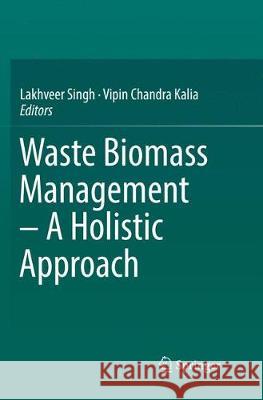Waste Biomass Management - A Holistic Approach » książka
topmenu
Waste Biomass Management - A Holistic Approach
ISBN-13: 9783319841946 / Angielski / Miękka / 2018 / 392 str.
Kategorie:
Kategorie BISAC:
Wydawca:
Springer
Język:
Angielski
ISBN-13:
9783319841946
Rok wydania:
2018
Wydanie:
Softcover Repri
Ilość stron:
392
Waga:
0.56 kg
Wymiary:
23.39 x 15.6 x 2.11
Oprawa:
Miękka
Wolumenów:
01
Dodatkowe informacje:
Wydanie ilustrowane











